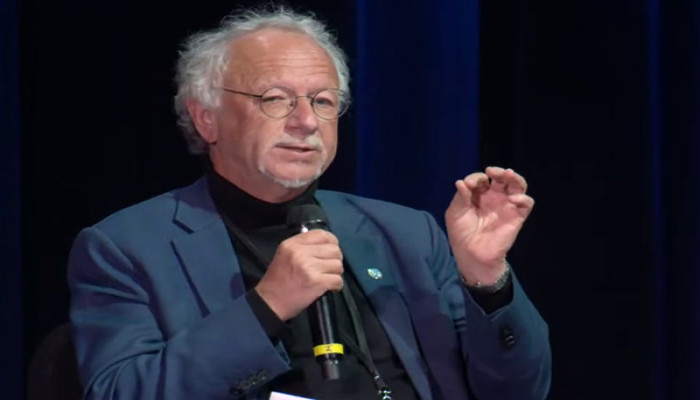UN expert states Xinjiang and Tibet situations are components of Chinese Colonisation process
- In Reports
- 12:13 PM, Apr 19, 2024
- Myind Staff
The Elie Wiesel Foundation for Humanity, in partnership with the World Uyghur Congress and Uyghur Human Rights Project, convened a conference in New York titled 'Beyond Concentration Camps: Forced Assimilation and China's Colonial Boarding Schools' to discuss the cultural assimilation of the Uyghur community in East Turkestan.
Social activists, human rights advocates, representatives, and delegates from the World Uyghur Congress, as well as the Elie Wiesel Foundation for Humanity, a US-based social organisation, were among the speakers at the conference.
During the press conference, Fernand De Varennes, former UN Special Rapporteur on Minority Issues, highlighted China's strategic efforts to systematically dismantle Uyghur civilisation and culture through its implementation of residential schools.
In his statement, De Varennes remarked that the situation in China, including Xinjiang and Tibet, extends beyond mere human rights violations to encompass a systematic process of colonisation, erasure, and elimination of cultures and peoples.
He suggested that Han nationalism drives this process, leading to significant breaches of international human rights standards, particularly affecting Tibetans, Uyghurs, and potentially other minorities.
While emphasising the UN's actions concerning cultural destruction, the former UN Special Rapporteur noted that several independent experts, including the former United Nations High Commissioner for Human Rights, have published numerous reports, communications, and responses addressing allegations of extensive violations. Many individuals within the UN community express deep concern regarding the magnitude and severity of the human rights abuses occurring.
He mentioned the huge internment of between one and two million Uyghurs and other minorities in large arbitrary detentions. This is possibly the largest detention of civilians since the Second World War. It affected around 10 to 20 percent of the adult population in Xinjiang at the time.
De Varennes highlighted that Chinese authorities in Tibet and Xinjiang have implemented systems subjecting Tibetans and Uyghurs to forced labour, potentially amounting to a modern form of slavery. He expressed shock at the scale of this phenomenon, citing the work of Tomoya Obokata, a Special Rapporteur on contemporary forms of slavery.
The UN Special Rapporteur highlighted China's state-run boarding school system in Xinjiang, which fails to educate children in their mother tongue and separates a large number of mainly Uyghur children from their families. He finds this practice surprising, shocking, and unacceptable, resembling a modern form of systematic cultural genocide.
According to the former UN Rapporteur, what's happening in Xinjiang and Tibet is not just massive human rights violations, but intentional colonisation. Allegations include sterilisation of Uyghur and minority women, the banning certain Muslim names, and restricting Islamic teachings. Books on Uyghur culture and literature are banned, even poetry books in Uyghur.
Destruction of mosques, historical sites, and cemeteries is part of erasing the people's presence systematically. This is deliberate, aiming to erase civilisation, people, and their history from the territory.
Image source: ANI







Comments